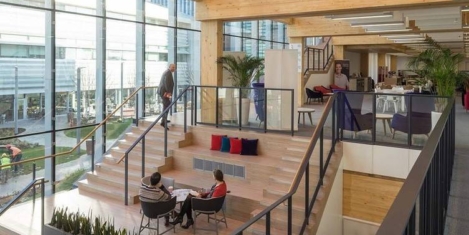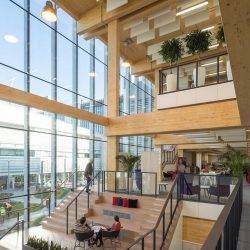To provide the best experiences, we use technologies like cookies to store and/or access device information. Consenting to these technologies will allow us to process data such as browsing behaviour or unique IDs on this site. Not consenting or withdrawing consent, may adversely affect certain features and functions.
The technical storage or access is strictly necessary for the legitimate purpose of enabling the use of a specific service explicitly requested by the subscriber or user, or for the sole purpose of carrying out the transmission of a communication over an electronic communications network.
The technical storage or access is necessary for the legitimate purpose of storing preferences that are not requested by the subscriber or user.
The technical storage or access that is used exclusively for statistical purposes.
The technical storage or access that is used exclusively for anonymous statistical purposes. Without a subpoena, voluntary compliance on the part of your Internet Service Provider, or additional records from a third party, information stored or retrieved for this purpose alone cannot usually be used to identify you.
The technical storage or access is required to create user profiles to send advertising, or to track the user on a website or across several websites for similar marketing purposes.
 Although Britain remains one of the safest countries to work in the world, too many workers are still being injured or made ill by their work a new report shows. Annual statistics from the Health and Safety Executive (HSE) show 1.4 million workers were suffering from work-related ill health and around 555,000 from non-fatal injuries in 2017/18. The annual statistics, compiled by HSE from the Labour Force Survey (LFS) and other sources, cover work-related ill health, workplace injuries, working days lost, costs to Britain and enforcement action taken.
Although Britain remains one of the safest countries to work in the world, too many workers are still being injured or made ill by their work a new report shows. Annual statistics from the Health and Safety Executive (HSE) show 1.4 million workers were suffering from work-related ill health and around 555,000 from non-fatal injuries in 2017/18. The annual statistics, compiled by HSE from the Labour Force Survey (LFS) and other sources, cover work-related ill health, workplace injuries, working days lost, costs to Britain and enforcement action taken.














 The new northern home of the BBC is giving London a run for its money when it comes to siting offices for the UK’s top tech talent, with Manchester leading the way, according to
The new northern home of the BBC is giving London a run for its money when it comes to siting offices for the UK’s top tech talent, with Manchester leading the way, according to 













November 5, 2018
An intersectional approach to trends in workplace design at Orgatec 2018
by Mark Eltringham • Comment, Workplace design
(more…)